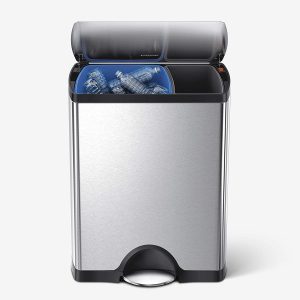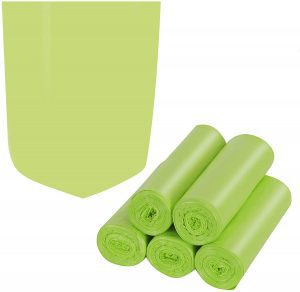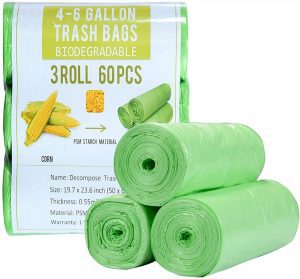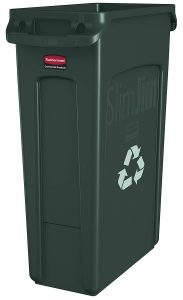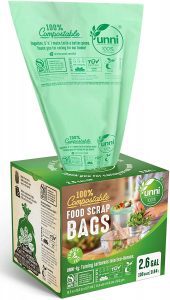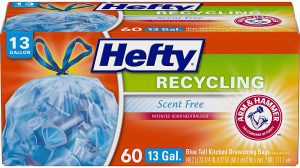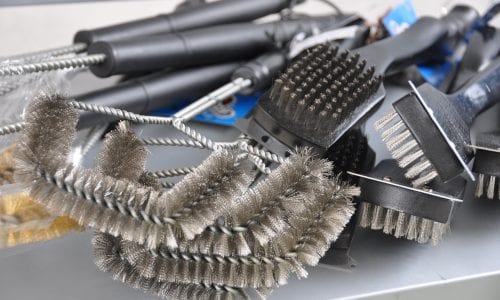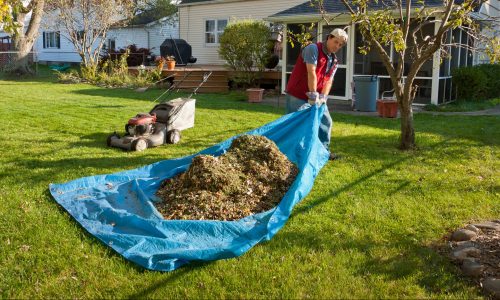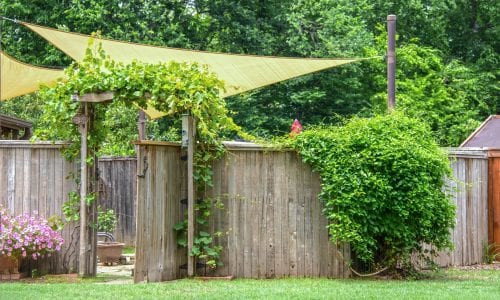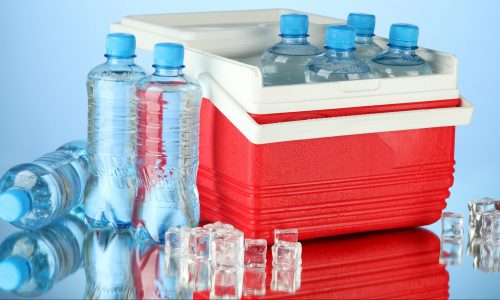The Best Trash, Recycling & Compost Bags & Cans
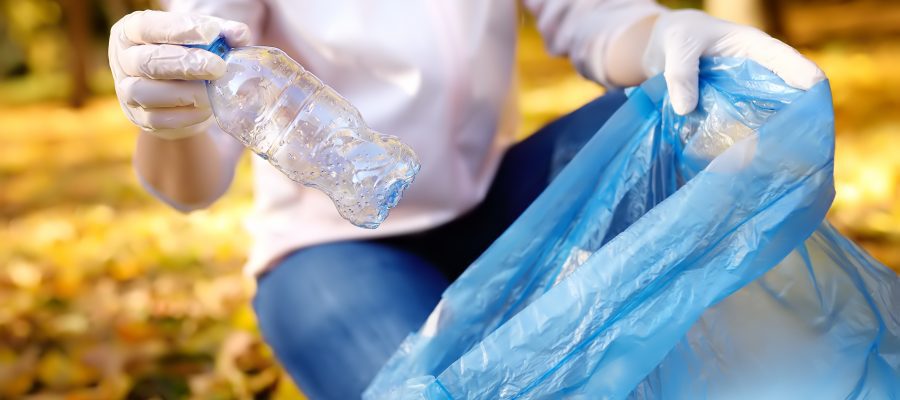
Our Review Process
Don't Waste Your Money is focused on helping you make the best purchasing decision. Our team of experts spends hundreds of hours analyzing, testing, and researching products so you don't have to. Learn more.
Our Picks For The Top Trash, Recycling & Compost Bags & Cans
- 1. Simplehuman Stainless-Steel Dual-Bucket Trash, Recycling & Compost Can, 12.2-Gallon
- 2. Inwaysin Leak-Proof Trash, Recycling & Compost Bags, 6-Gallon, 100-Count
- 3. Jaoul Tear-Resistant Biodegradable Trash, Recycling & Compost Bags, 4-Gallon, 60-Count
- 4. Rubbermaid Vented Slim Jim Trash, Recycling & Compost Bin, 23-Gallon
- 5. UNNI Plant Material Biodegradable Trash, Recycling & Compost Bags, 2.6-Gallon, 100-Count
- 6. Hefty Odor Control Trash, Recycling & Compost Bags, 60-Count
This bin has two separate compartments for trash and recyclables and a strong steel pedal for opening. The lid closes silently using patented Lid Shox technology.
Modern LookKeep your trash and recyclables separate in this bin.
Use these biodegradable bags for trash or compost. They are strong and durable but will naturally decompose. The bags are larger than the typical four-gallon trash bags.
Eco-Friendly OptionThese compost bags naturally decompose without causing damage to the environment.
These trash bags made from corn starch are biodegradable. They are sturdy and tear- and leak-resistant. The bags are a perfect fit for four- to five-gallon trash bins.
Made from Corn StarchThese biodegradable bags are made with corn starch and other natural materials.
Ideal for heavy-duty use, this recycling and compost bin is made from commercial grade materials. It features structural ribbing along the rim to resist crushing. The bin has a slim, space-saving profile.
Heavy-Duty ConstructionThis recycling and compost bin is made from commercial-grade materials.
Buying Guide
Taking care of the trash, recycling and compost you and your family produce can be an unpleasant job. However, it doesn’t have to be if you have the right tools. Without proper trash, recycling and compost bags and cans, you can end up with a messy, smelly and foul chore. However, the right bags and cans ensure that your garbage is always neatly put away, there is no lingering odor and it’s easy for the sanitation workers to pick up.
When it comes to trash bags, the first thing you have to look at is size. The bag needs to be large enough to fit inside your trash bin. If the bag is too small, it will end up falling inside the bin and creating a mess. If the bag is too large, you will have a lot of unused space in the bag. In addition, check to see the thickness of the bag so you can make sure it is durable to handle the weight of the material inside. The last thing you want is for the bag to split open when you take it out of the trash can, spewing trash all over the place.
For recycling bins, first consider where you will be placing them. They need to be in an easily accessible place so you can conveniently toss in any recyclable materials throughout the day. Some people prefer to keep them in the garage while others like to have a small recycling bin in their kitchen. The placement of the bin will help you determine the size you need. Ensure that the bin is portable so it’s easy for you to pull it out to the curb for the sanitation workers to pick up.
What to Look For
- With compost bags, the material is of the utmost importance, because you can’t use a regular plastic bag to hold your compostable waste. The bag itself needs to be compostable as well, so that it can also biodegrade along with the contents inside. In some regions, using the right compost bags is required by the sanitation department, and they will not collect your compost if you are using the wrong bags.
- Keep in mind that compost bags have a tendency to leak. As a result, you might want to place something underneath the bags in your compost bin so that you don’t end up with a watery mess when you change out the bag.
- Check to see whether your region has specific requirements for trash, recycling or compost bags and bins. For example, some areas may require you to place your trash in bags on the curb while others may require your trash in a bin.
- Most trash or compost bags don’t come with a specific type of closure, so you have to tie the ends shut. However, some do come with a drawstring type of closure. Another option is bags that have ties built into the bag so it’s easy to tie them shut.
More to Explore
When you start paying attention to the waste you and your family make, the quantity can be quite alarming. Often, we don’t notice how many things we are throwing away. While recycling as many items as possible is key, as is composting food waste, there are still other ways you can reduce the amount of waste you can create. One easy-to-implement tip is to always bring a reusable water bottle and coffee cup with you wherever you go. That way, when you have to buy a drink, you use your reusable cup as opposed to wasting a paper or plastic one. Another tip is to have a stash of reusable shopping bags in your car. That way, you can significantly reduce the number of plastic bags you use because the reusable option is always within reach.

